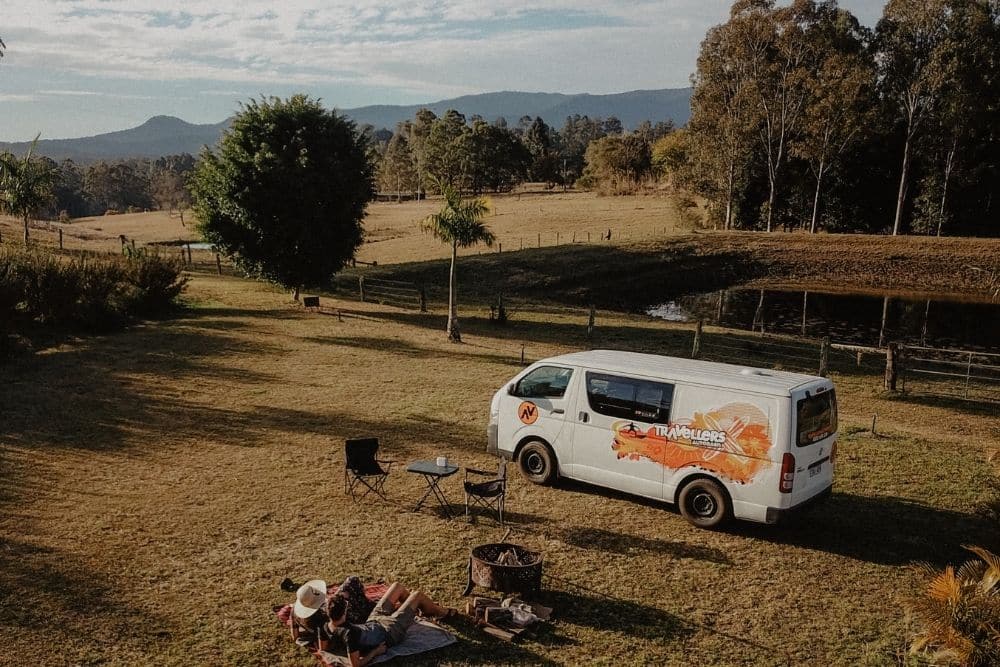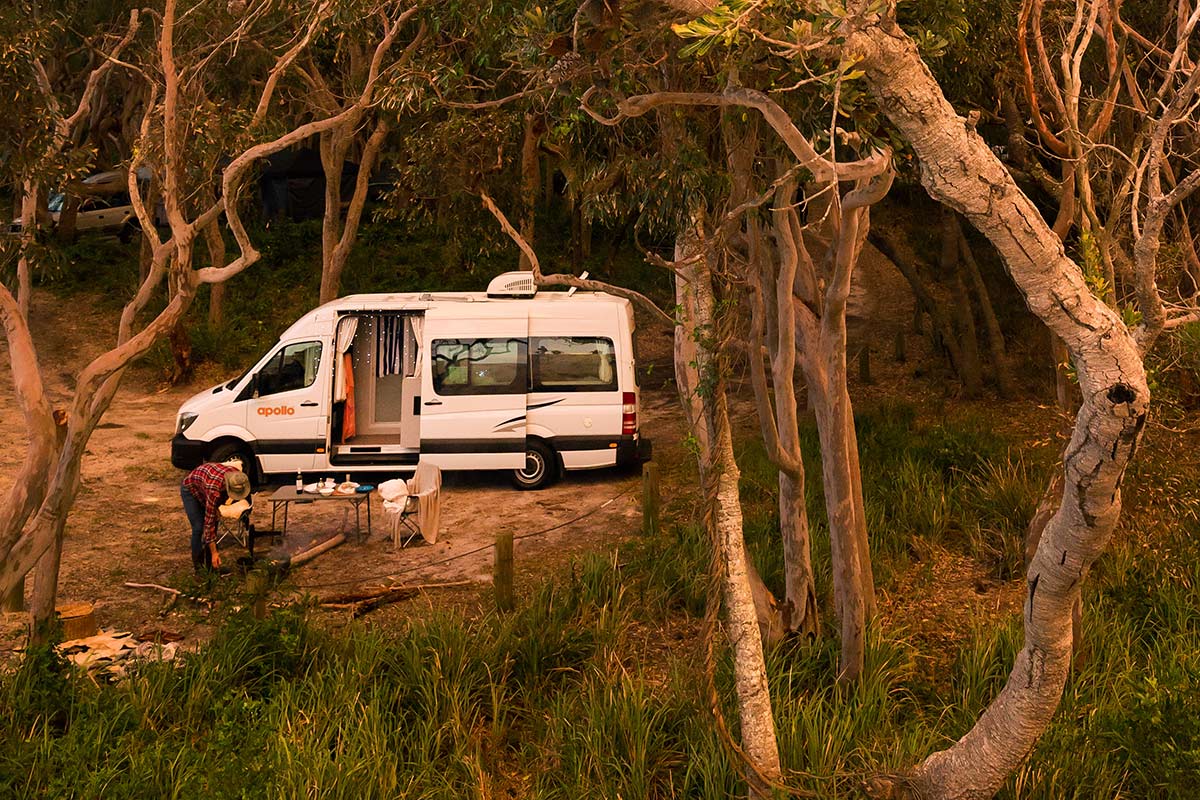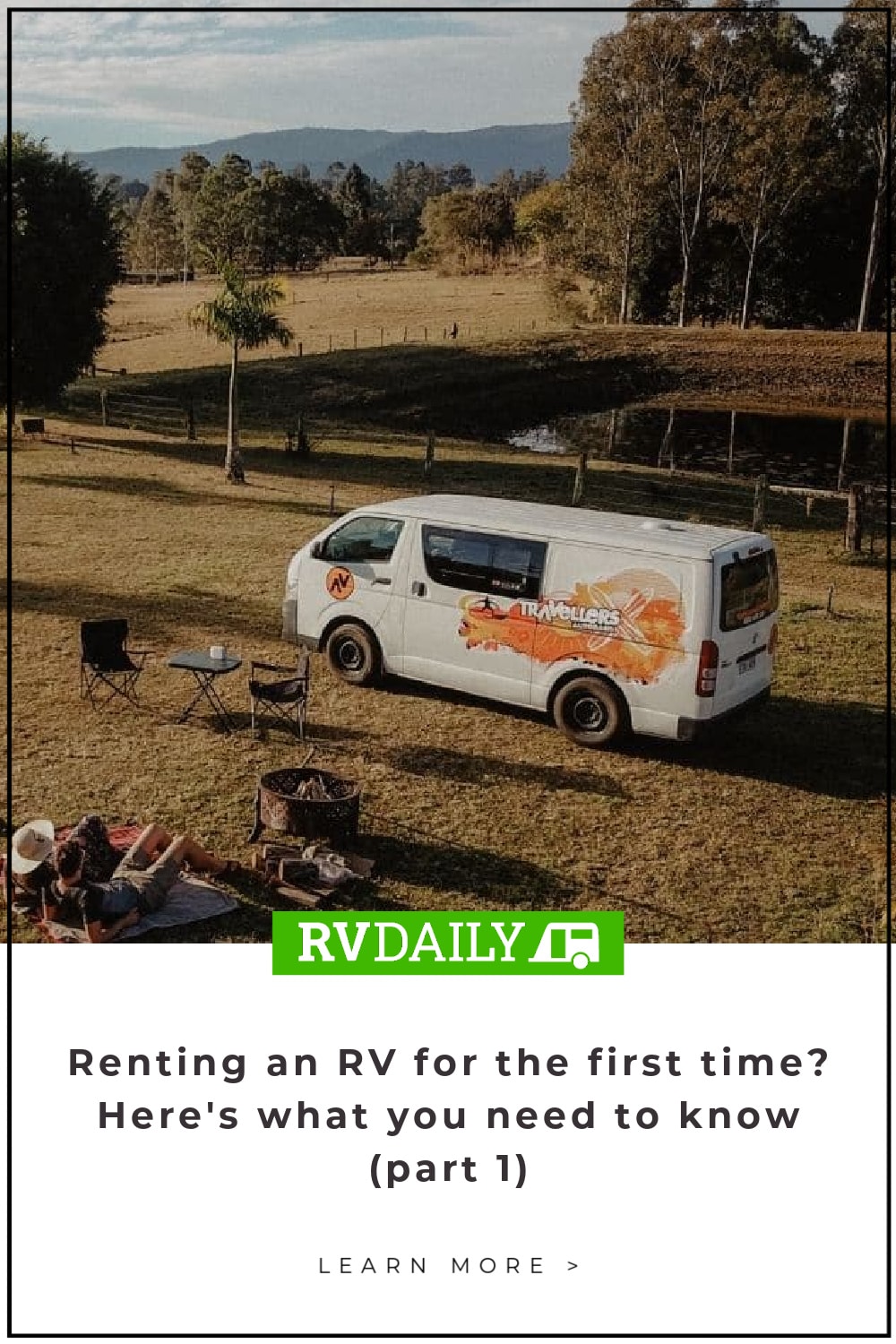Renting an RV for the first time? Here’s what you need to know (part 1)




We were in between COVID-19 lockdowns in Australia, renting an RV was cheap as chips and my partner was jumping with joy at the bargain he’d just scored on a flashy campervan for our upcoming surf trip. Being the main travel planner in the relationship, I was chuffed that he’d actually booked something. No questions asked, we rocked up to Apollo Motorhomes ready to pick up our home on wheels. And then I saw it; the Euro Tourer camper which, in comparison to the Mini Cooper I was used to driving, resembled a bus. Oh, and I’m the only driver.
I’ve hired several RVs in Australia since and between them, I’ve learnt a lot. Want to make sure you’re not in for a shock on pick-up? Here’s what you need to know before renting your first RV.

Once you’ve decided to hire a camper (great choice), the next step is to figure out what vehicle you’d like to hire. Are you looking for a campervan or a motorhome? To work this out, ask yourself these questions:
If you’re travelling with more than two people in the RV, I recommend looking at renting a motorhome. While some campervans (like the hitops) claim to sleep two adults and two children, many of the second bed areas are small, cramped and claustrophobic. I’m honestly not sure how anyone could sleep up there, no matter what their size.
Motorhomes are a lot more spacious and usually have room for a fixed bed and a table area. If you’re going on a long trip, this might be the best option for you. The downside to renting a motorhome is the sheer size of your vehicle. This can come with manoeuvring and restriction challenges.
Campervans are a lot cheaper and easier to hire around Australia. They’re available in a variety of sizes, with and without toilets and showers. If you plan to spend time in bustling cities and towns, I advise thinking about a camper vs. a motorhome. Renting and driving a big RV around any busy road can be daunting. Make your life easier and go for the smaller option.
This question depends on a couple of factors:
Our first RV (the Euro Camper beast mentioned above), came with a shower and a toilet. We spent every night at a campsite complete with a shower block lined with beautifully warm showers (it was winter) and we didn’t use our shower once. The only thing it was good for was storing our wetsuits after a day’s surf. Ask yourself, will you really use it?
One final word of warning when it comes to toilets: what goes in must come out. At the end of your trip, or during your travels if you’re going for a while, you’ll need to dispose of the waste. You can usually pay the RV company you’re renting from to do this at the end of your trip, but it’s not cost effective. Otherwise, get ready to draw straws and hold your nose. It’s not pleasant. Another option is to meet in the middle. Ban number twos in your RV toilet and save the smell for a public bathroom.

Don’t worry, renting an RV isn’t as bad as flying with Jetstar, who would probably charge you to breathe if they could. Jokes aside, here’s what to watch out for:
When you get to the rental office, you’ll be asked to put down a hefty deposit. Make sure you’re aware of the figure before turning up or you could get a shock.
This one can add up quickly and I suggest checking out the options before you step into the office. Trying to make a decision under pressure, with a salesperson in your ear, and an exciting trip just moments away, isn’t the best time to make important decisions about renting an RV.
Be mindful that your RV is going to eat a lot more petrol than your average car. If you’re on a tight budget, make sure you factor this into your calculations before selecting your vehicle. Remember, the bigger the vehicle, the more petrol you’ll probably use.
Australia is a big country and more often than not, your road trip will start in one state and end in another. Picking up your RV in a different location to the drop off can save you a lot of time, but expect it to be slightly more expensive.
Read the fine print carefully when renting an RV. A lot of companies expect your vehicle to be sparkling clean on return or you’ll face a charge. You might also need to top up the gas.
Travelling with your furry friend? If you’re allowed to bring a pet with you, the chances are you’ll need to pay a small fee to do so.

Once you’re clear on exactly what you want, it’s time to start comparing rental companies. Check out the companies listed below, or to save time you might want to use a comparison website like VroomVroomVroom. There’s also Camplify, which is like Airbnb for RVs.
Tip: Keep in mind where the RV company’s office is located when renting. If you don’t own a car, consider transport costs. It might be cheaper to go with a slightly more expensive company if it’s closer to home.
As you can see, there’s plenty to keep in mind and it’s worth taking the time to carefully consider the points above. At the end of the day, no matter what vehicle you opt for, the chances are you’ll have an awesome time. Happy travels.
